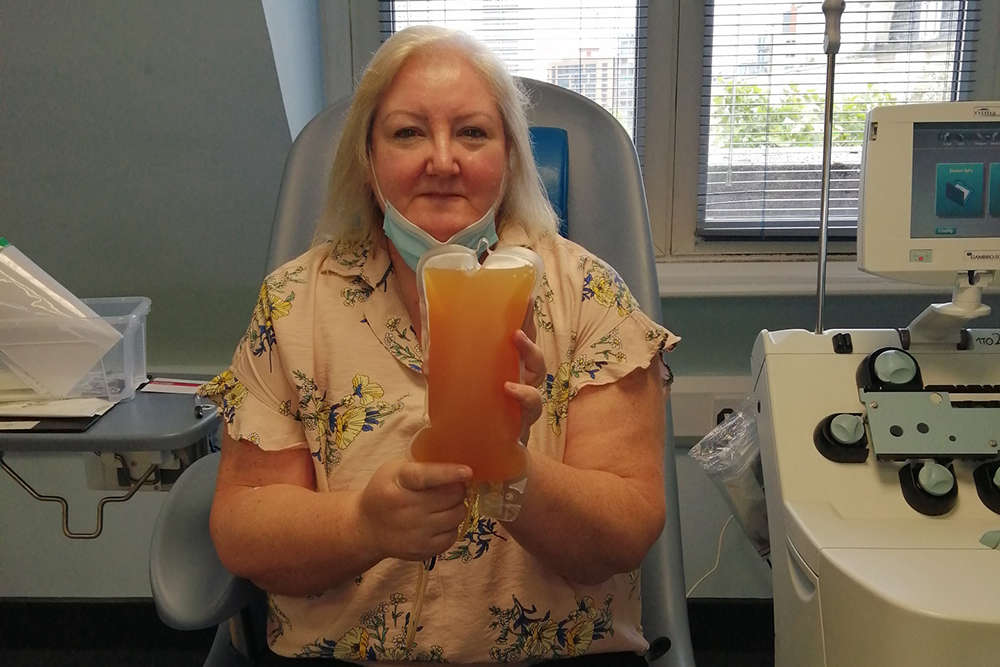
From today Birmingham’s plasma donor centre is fully upgrading to new ‘female friendly’ donor machines which will almost double the number of women who can donate lifesaving plasma.
Up until now, the number of female donors has been severely restricted. The previous donation machines operated to minimum height and weight criteria that ruled most women out. Only around 8% of the 1,000 plasma donors at the centre in Birmingham were female, because of the restrictions.
However the new machines operate with new height and weight criteria, based on more up to date evidence. The majority of women can now donate plasma, which will even up the donor mix, and bolster donations of a medicine under supply pressure.
The nine new machines go fully live in Birmingham today (August 11th), at the plasma donor centre in New Street in the city centre, one of three plasma donation centres in the country. Several were used on Wednesday to complete staff training.
The machines can take donations from women who are shorter or who weigh less. Previously, a woman of around average height at 5ft 4ins tall had to weigh 12 stone 8lbs to make a donation. Now, a woman who is 5ft 4ins tall only needs to weigh 9 stone to make a donation.
The new machines are also designed solely for plasma donation, which gives them more advantages. Donors say the new machines are more comfortable and faster, with each donation taking about 35 minutes instead of 45 minutes.
In plasma donation, blood is gradually passed through the machine, which spins out the plasma. The red blood cells are gradually returned to the donor. The plasma will be used to make immunoglobulin, an antibody-rich medicine which strengthens or stabilises the immune system of people with rare disorders.
Each year, around 1,300 people from the West Midlands are treated with immunoglobulin, for disorders such as Primary Immunodeficiency, Guillain–Barré syndrome, and autoimmune haemolytic anaemia.
England relied on imported immunoglobulin for more than 20 years as a precaution against vCJD but the Medicines and Healthcare products Regulatory Agency (MHRA) said last year that UK plasma donation can again be used for immunoglobulins.
NHS Blood and Transplant has been directed to take donations to bolster long term immunoglobulin supplies to NHS hospitals in the face of international supply pressures. Mark Bailey, Birmingham Plasma Donor Centre manager, said:
“Our new plasma donation machines are female friendly, enabling almost twice as many women to save lives by giving plasma.
“We know some women were disappointed because we had to turn them away before. Now, more people than ever can donate. Please register to donate plasma – you have a medicine in you which will save lives.”
You can register to donate at blood.co.uk/plasma.












Comments
Add a comment